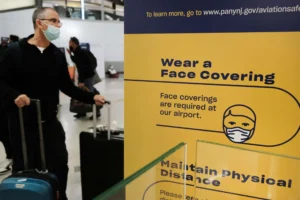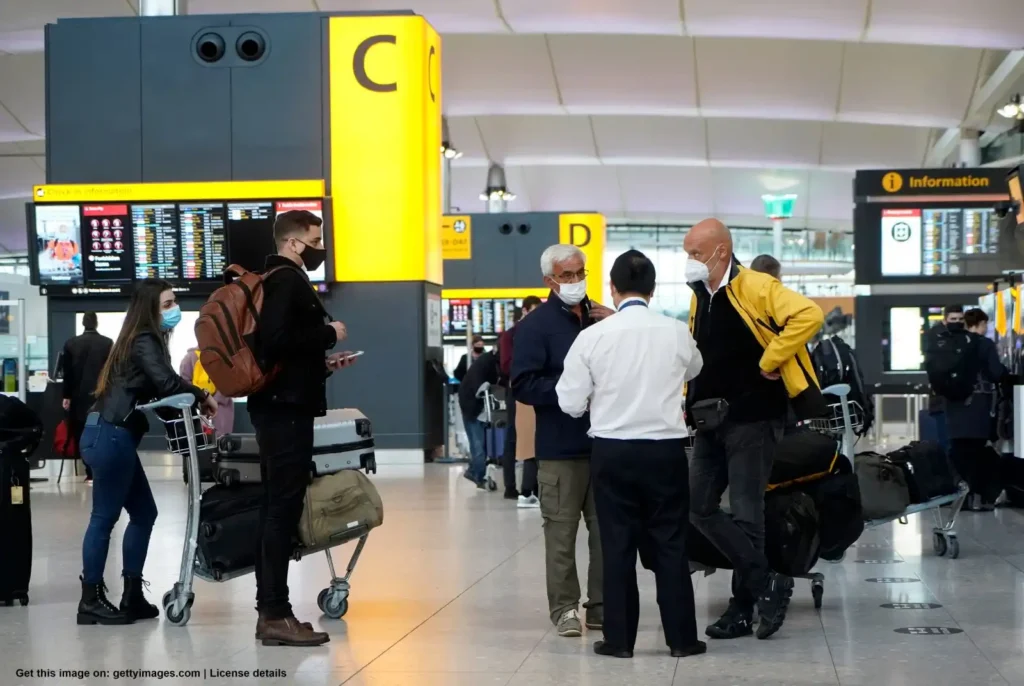In a major policy reversal, the United Kingdom officially removed Nigeria and 10 other African countries from its COVID-19 red list on Wednesday, December 15, 2021. The move brought an end to mandatory hotel quarantine rules and lifted travel restrictions that had disrupted plans for many travelers, business professionals, and members of the Nigerian diaspora. The decision, announced by UK Health Secretary Sajid Javid, was based on new evidence suggesting that Omicron was already widely circulating within the UK and globally, making targeted travel bans less effective.
Initial Ban Triggered by Omicron Variant Concerns
On December 4, 2021, the UK government had placed Nigeria on its red list due to the detection of the Omicron variant in passengers arriving from the country. This designation imposed strict travel conditions, requiring all travelers from Nigeria to quarantine in government-approved hotels for up to 10 days, at their own expense. Additionally, travelers were required to undergo multiple COVID-19 tests before and after arrival.
These measures sparked widespread criticism both within Nigeria and internationally. The United Nations labeled the travel restrictions as “travel apartheid,” arguing that they unfairly targeted African nations despite the fact that the Omicron variant had already been detected in multiple countries outside the continent.
Testing Still Required Despite End of Quarantine
While the red list restrictions have been lifted, the UK government has maintained certain testing protocols. Travelers from Nigeria who are fully vaccinated are no longer required to quarantine or take a pre-departure COVID-19 test. However, they must still book and pay for a PCR test to be taken on or before the second day after arriving in the UK.
On the other hand, travelers who are not fully vaccinated must adhere to more stringent measures. These include presenting a negative pre-departure test taken within 48 hours before departure, booking and taking PCR tests on both day 2 and day 8 of arrival, and completing a passenger locator form before travel. Quarantine at home or in a place of residence remains mandatory for unvaccinated travelers.

Nigeria Welcomes Decision as a Victory for Diplomacy and Equity
The reversal of the UK’s travel ban has been hailed as a diplomatic success by Nigerian officials. Many within the Nigerian government, including foreign affairs and aviation leaders, had strongly condemned the original red list decision and engaged in negotiations urging the UK to reconsider. Aviation authorities warned that the ban would strain bilateral relations and disrupt essential air connectivity during the busy holiday season.
Public health experts and business leaders also welcomed the decision, emphasizing that collaborative global strategies—not selective travel bans—are the most effective way to contain emerging variants of COVID-19. The removal of Nigeria from the red list now allows for the resumption of international travel between the two countries, which had seen a significant decline due to the restrictions.
Impact on Travel, Business, and the Nigerian Diaspora
The UK’s decision to lift the travel ban has immediate and far-reaching implications for multiple sectors:
-
Aviation and Tourism: Airlines serving the Nigeria–UK route, such as British Airways, Virgin Atlantic, and Air Peace, can now resume operations without the uncertainty and financial losses caused by the red list.
-
Business Travel: Nigerian entrepreneurs and professionals who conduct business in the UK can now travel with fewer obstacles, helping to sustain trade and investment flows.
-
Nigerian Diaspora: Thousands of Nigerians living in the UK, many of whom had family members stranded in Nigeria, can now reunite with their loved ones during the festive period.
-
Education Sector: Nigerian students in the UK, one of the largest foreign student communities, now face fewer hurdles when returning from holiday breaks, making it easier to continue their academic programs without disruption.
Timeline of Major Events
| Date | Event |
|---|---|
| October 11, 2021 | UK recognizes Nigeria’s COVID-19 vaccine certificates for travel purposes |
| December 4, 2021 | UK adds Nigeria to COVID-19 red list |
| December 14, 2021 | UK announces removal of Nigeria and other countries from red list |
| December 15, 2021 | Red list removal takes effect at 4:00 AM UK time |
Critics Call for More Transparent and Fair Travel Policies
While the UK government justified its original decision as a precautionary measure to contain Omicron, many health professionals and civil society groups stressed that the red list disproportionately penalized African countries. They argued that rather than encouraging transparency in variant reporting, such bans could discourage nations from sharing genomic surveillance data in the future.
Nigerian health officials and international public health organizations have since called for equitable and science-based travel regulations that prioritize global cooperation over isolationist responses.
Looking Ahead: Continued Monitoring and COVID-19 Safety Measures
Despite the removal of red list restrictions, the UK government continues to monitor global COVID-19 transmission rates and may reintroduce measures if necessary. Travelers are urged to stay updated on entry requirements, particularly as new variants may emerge in the future.
The UK’s current COVID-19 travel rules emphasize personal responsibility and vaccination, aiming to balance public health safety with the need to keep global movement and economic activity alive.






